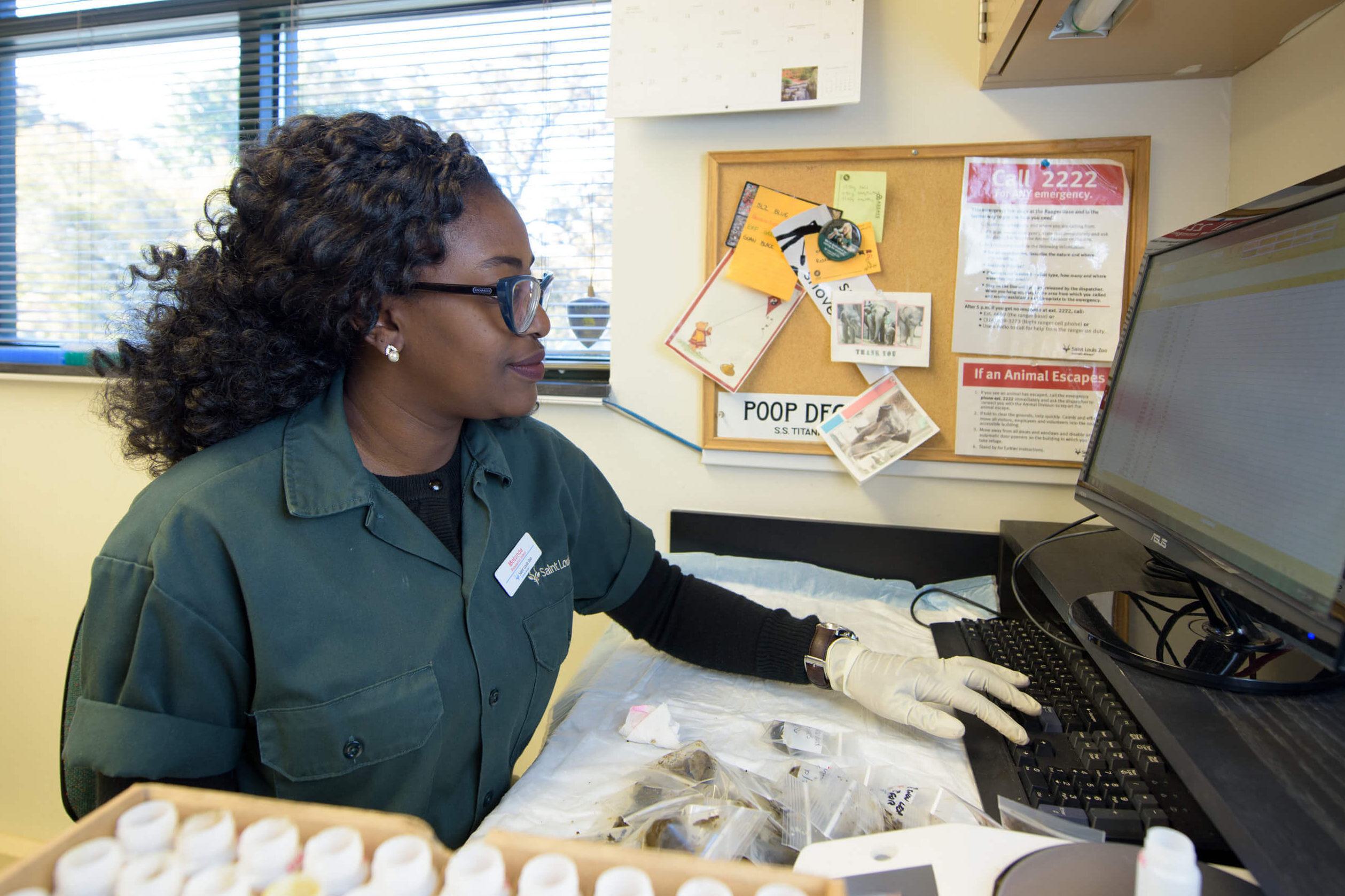
Saint Louis Zoo Institute for Conservation Medicine
The Saint Louis Zoo Institute for Conservation Medicine takes a holistic approach to wildlife conservation, public health, and sustainable ecosystems to ensure healthy animals and healthy people.
Our Scope
-

Galápagos Tortoise Movement Ecology Program
Learn More -

St. Louis Box Turtle Project
Learn More -

Forest Park Living Lab
Learn More -

Madagascar Radiated Tortoises
Learn More -

Arboviruses in Brazil
Learn More -

Cuban Crocodiles
Learn More -

River Dolphins
Learn More
Conservation Medicine
To address the challenges associated with the growing interconnections between the health of humans and the animal kingdom, the Saint Louis Zoo established the Institute for Conservation Medicine in 2011. Conservation medicine addresses the growing disease challenges that threaten the long-term survival of many wild animal species and that negatively impact human public health. The field of conservation medicine emphasizes a multidisciplinary approach to studying the interrelated nature of diseases in animals and humans, in the context of environmental change.
The Institute for Conservation Medicine’s research focuses on diseases that affect the conservation of threatened and endangered wildlife species. Scientists study the origin, movement and risk factors associated with diseases to better understand the impact of such diseases on wildlife populations; the links between the health of zoo animals and free-living wildlife populations; and the movement of diseases between wildlife, domestic animals and humans.
More on Our Work

Internships
The Saint Louis Zoo Institute for Conservation Medicine (ICM) takes a holistic approach to research on wildlife, public health and sustainable ecosystems to ensure healthy animals and healthy people. Research in the (ICM) focuses on those diseases known to affect threatened wildlife, with an emphasis on health challenges at the wildlife, domestic animal and human interface. The internship with (ICM) will provide students exposure to scientific research through database management, laboratory diagnostics and field veterinary medicine.







